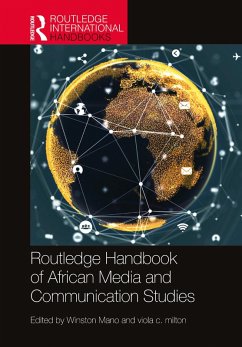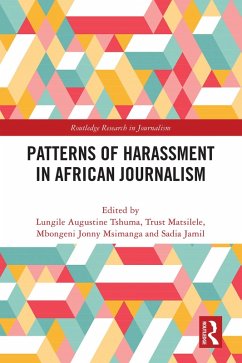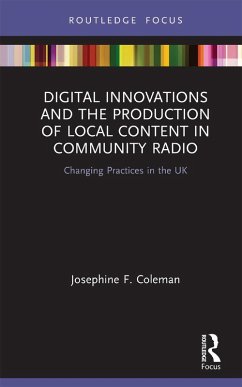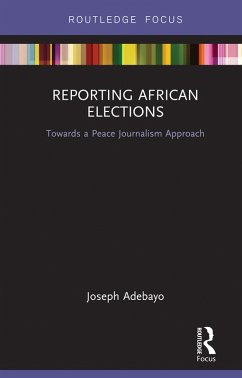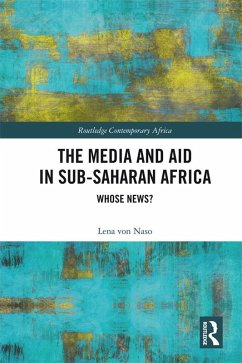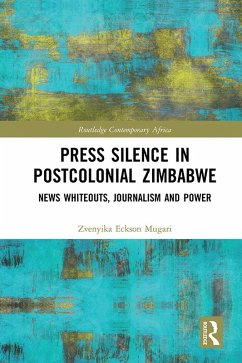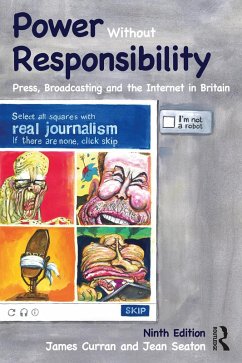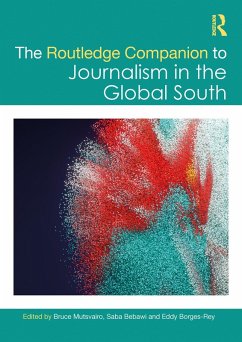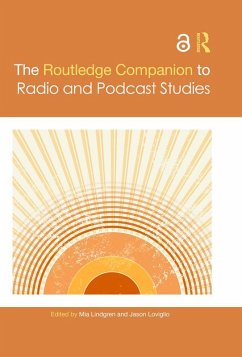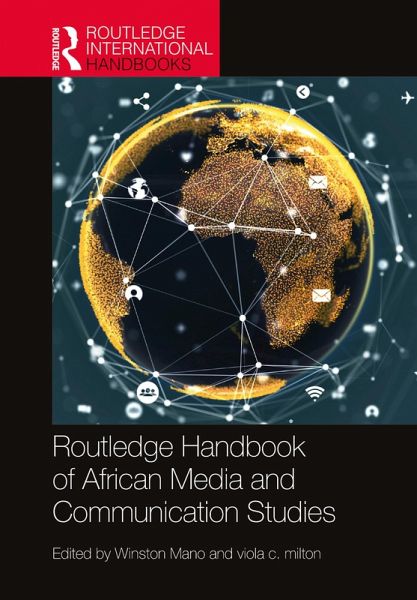
Routledge Handbook of African Media and Communication Studies (eBook, PDF)
Versandkostenfrei!
Sofort per Download lieferbar
45,95 €
inkl. MwSt.
Weitere Ausgaben:

PAYBACK Punkte
23 °P sammeln!
This handbook comprises fresh and incisive research focusing on African media, culture and communication. The chapters from a cross-section of scholars dissect the forces shaping the field within a changing African context. It adds critical corpora of African scholarship and theory that places the everyday worlds, needs and uses of Africans first.The book goes beyond critiques of the marginality of African approaches in media and communication studies to offer scholars the theoretical and empirical toolkit needed to start building critical corpora of African scholarship and theory that places ...
This handbook comprises fresh and incisive research focusing on African media, culture and communication. The chapters from a cross-section of scholars dissect the forces shaping the field within a changing African context. It adds critical corpora of African scholarship and theory that places the everyday worlds, needs and uses of Africans first.
The book goes beyond critiques of the marginality of African approaches in media and communication studies to offer scholars the theoretical and empirical toolkit needed to start building critical corpora of African scholarship and theory that places the everyday worlds, needs and uses of Africans first. Decoloniality demands new epistemological interventions in African media, culture and communication, and this book is an important interlocutor in this space. In a globally interconnected world, changing patterns of authority and power pose new challenges to the ways in which media institutions are constituted and managed, as well as how communication and media policy is negotiated and the manner in which citizens engage with increasing media opportunities. The handbook focuses on the interrelationships of the local and the global and the concomitant consequences for media practice, education and citizen engagement in today's Africa. Altogether, the book foregrounds convivial epistemologies relevant for locating African media and communication in the pluriverse.
This handbook is an essential read for critical media, communications, cultural studies and journalism scholars.
The book goes beyond critiques of the marginality of African approaches in media and communication studies to offer scholars the theoretical and empirical toolkit needed to start building critical corpora of African scholarship and theory that places the everyday worlds, needs and uses of Africans first. Decoloniality demands new epistemological interventions in African media, culture and communication, and this book is an important interlocutor in this space. In a globally interconnected world, changing patterns of authority and power pose new challenges to the ways in which media institutions are constituted and managed, as well as how communication and media policy is negotiated and the manner in which citizens engage with increasing media opportunities. The handbook focuses on the interrelationships of the local and the global and the concomitant consequences for media practice, education and citizen engagement in today's Africa. Altogether, the book foregrounds convivial epistemologies relevant for locating African media and communication in the pluriverse.
This handbook is an essential read for critical media, communications, cultural studies and journalism scholars.
Dieser Download kann aus rechtlichen Gründen nur mit Rechnungsadresse in A, B, BG, CY, CZ, D, DK, EW, E, FIN, F, GR, HR, H, IRL, I, LT, L, LR, M, NL, PL, P, R, S, SLO, SK ausgeliefert werden.




